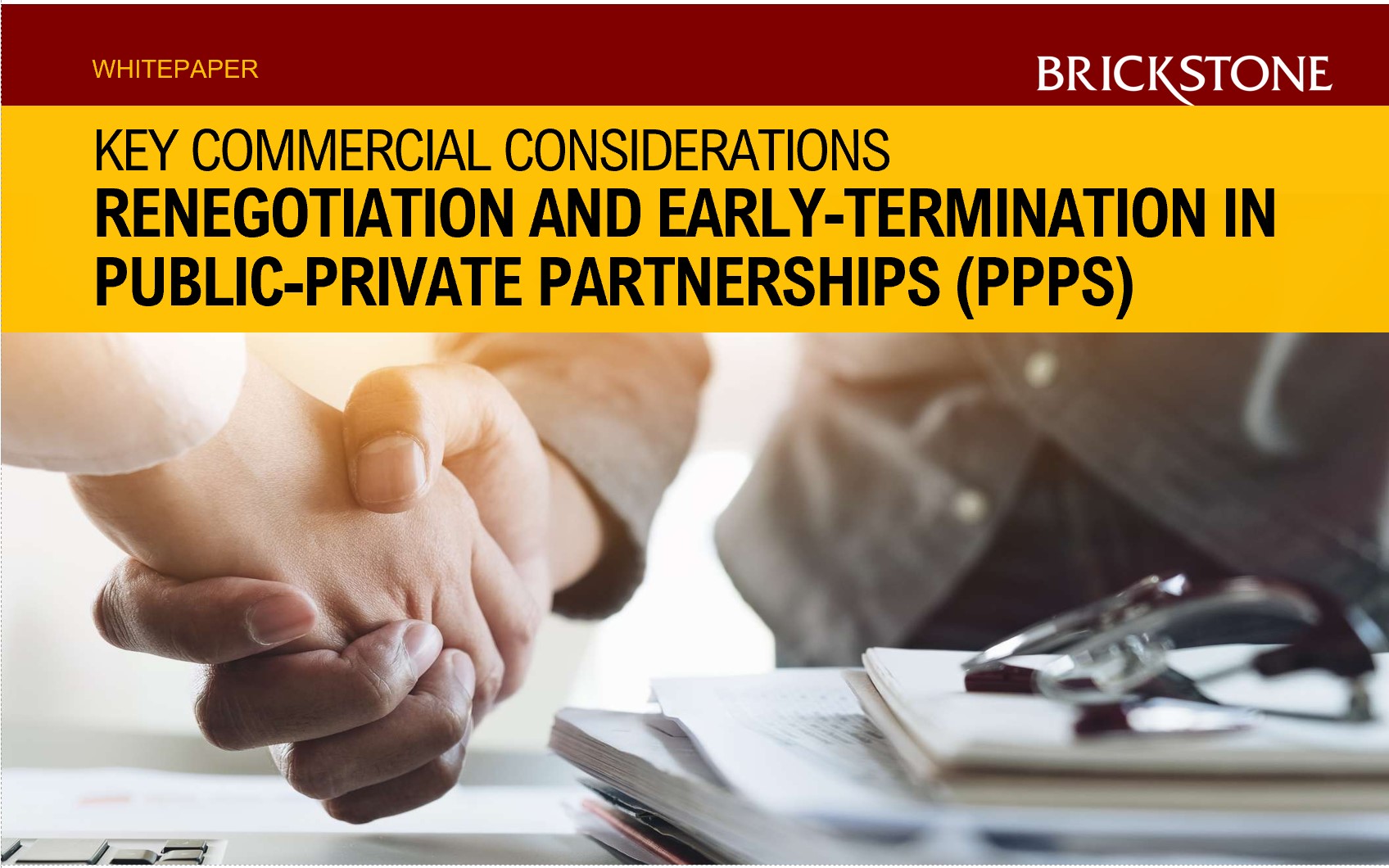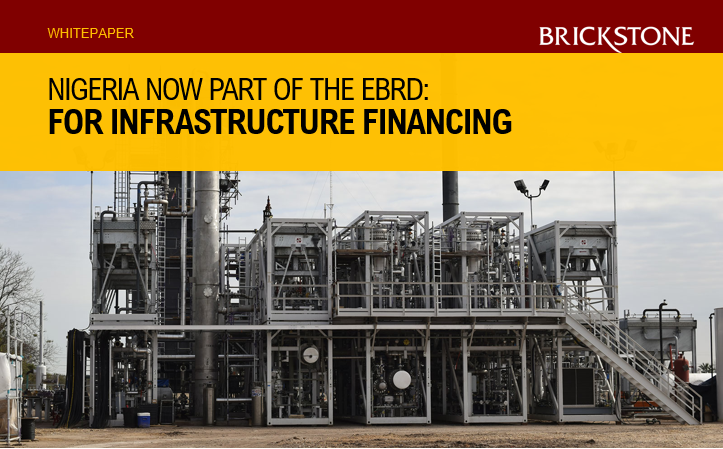Renegotiation and Early-Termination in Public-Private Partnerships (PPPs)
Renegotiation and Early-Termination in Public-Private Partnerships (PPPs)
Renegotiation and Early-Termination are important considerations in Private-Public Partnerships. As an introduction, a Public-Private Partnership is one of the most commonly employed business strategies to achieve a common goal through a collaboration or alliance with a partner. This form of partnership leverages the financial strength of the private sector to achieve public development for a country or an institution.
It must be stressed that one of the easiest ways to achieve many goals in business is to enter into partnership with other people, as this sort of relationship has always worked out in accomplishing a common good, especially when one party leverages on the competitive advantages of the other to reach the partnership goal.
Nonetheless, even when at the early stage of the partnership, the relationship seems promising, it is still subject to Renegotiation and Early-Termination owing to divergent reasons and consistent commercial changes.
This White Paper has been curated by the expert team at Brickstone Africa that have worked with various participants engaged in Public-Private Partnerships, as such it is fortified with comprehensive knowledge that is useful for those seeking to enter such alliance, as well as those already in it and are looking to gain broader knowledge.
The White Paper starts by giving an in-depth explanation of what Public-Private Partnerships are, some features of Public-Private Partnerships, and the essential clauses that must be present in a Public-Private Partnership Agreement. Furthermore, it explores the significance of the Renegotiation and Early-Termination of Public-Private Partnership Agreements, the reasons that may arise to cause them, as well as, their implications. In addition, it expounds on some key Renegotiation and Early-Termination subject matters that must be considered by potential participants engaging in a Public-Private Partnership. Finally, to ensure proper digestion, it makes an illustration of two case studies where these two mechanisms were resorted to, and the reasons for this decision.
In explaining the meaning of Public-Private Partnerships, this White Paper makes reference to the definition by the Public-Private Partnerships Knowledge Lab, which defines it as “a long-term contract between a private party and a government entity, for providing a public asset or service, in which the private party bears significant risk and management responsibility, and remuneration is linked to performance”.
Some of the typical features for Public-Private Partnerships that are discussed in this White Paper includes the fact that there is a transfer of substantial risk from the public to the private sector. Also, performance outcomes drive all public-private partnership agreements, and lastly, transparency and accountability form key principles of these types of agreements.
In a Public-Private Partnership Agreement, there are some clauses that generally form a part of the agreement, and clauses are discussed exhaustively in this White Paper. They include Performance Requirements; Payment Mechanisms; Adjustment Mechanisms; Dispute Resolution Procedures; and finally Termination Procedures.
Moving forward, as previously noted, Renegotiation and Early-Termination may be resorted to by the parties engaged in a Public-Private Partnership if things occur to affect the partnership relationship or the continued existence of the object of the partnership, usually a public infrastructure project. Early-Termination or Renegotiation are mechanisms used to bring the terms and purpose of the partnership in line with current realities.
In particular, Renegotiation of a Public-Private Partnership Agreement is an attempt to revisit the terms of the agreement, in order to bring it in line with current realities. This mechanism is popular among parties in a public-private partnership agreement because this kind of agreement is usually drawn over a long period of time, as such, it would be affected by different socio-economic, political, economic, and legislative changes. This is quite important to participants in Public-Private Partnership Agreement, and as a result, some of them add it as a clause in their contracts.
For Early-Termination, an appropriate definition would be that it signifies bringing to an end, a Public-Private Partnership Agreement before the due date of completion as evident in the contract. This White Paper further provides an inclusive exploration of Renegotiation and Early-Termination, as well as other reasons for employing them as key strategies in business.
When Renegotiation and Early-Termination are used, they invoke implications which must be considered and assessed before they are employed. The Early-Termination of Public-Private Partnerships can result in the payment of high compensation by the procuring authority to the project company. Also, it results in abandoned infrastructure projects for the procuring authority and the public. Furthermore, Renegotiation for its own part, can blur transparency and cause distrust between both parties to the Public-Private Partnership. Additionally, it may give room for an opportunistic party to exploit the contract for their own selfish interests. Other reasons to be considered are expatiated in this White Paper.
Furthermore, it is crucial for stakeholders to note the important commercial considerations relating to renegotiation and early-termination of the public-private partnership agreement. These considerations have been comprehensively explained in this White Paper. For the renegotiation of the agreement, one of the most important considerations is for the parties in the partnership to adequately put thought to the market conditions, as well as to the commercial, financial, and legal angles while renegotiating because it would allow the newly agreed terms to align with current market realities. This would, of course, benefit the parties’ agreement and help them assess the implications of the renegotiation more broadly.
In addition, with regards to early-termination, as a way of avoiding and hedging against the risk of it ever happening during the term of the contract or hedging against the risk of loss if it happens, this White Paper advises that both parties should monitor the partnership and possible defaults of the other party. This would give room to review the performance of the parties, especially the Project Company and give adequate notice options, in order to explore other remedial options. This White Paper discusses in further detail, these considerations as well as more strategic options to use in public-private partnerships.
Consequently, this White Paper employs the use of two case studies of Public-Private Partnerships which were terminated, and the reasons they were terminated. The first is the Light Railway Transit (LRT) Project – The Metro Sul do Tejo (MST), Portugal, which was terminated at the first stage of construction. Second is the Domestic Terminal at Muritala Mohammed Airport, Nigeria, which was terminated because of some operations, financing, and legal issues.
OTHER E-BOOKS THAT MAY BE OF INTEREST
Nigeria Now Part Of The EBRD: Implications For Infrastructure Financing
Download: Accelerating Renewable Power Generation Projects
Download: Accelerating Airports Infrastructure Projects
Why not contact us to make your Project Happen
Our advisors and consultants would be able to schedule an online meeting with you to discuss your project with the overall objective of seeking ways to achieve the “bankability” and protection of the long term asset value of your project. Request a Meeting Now








